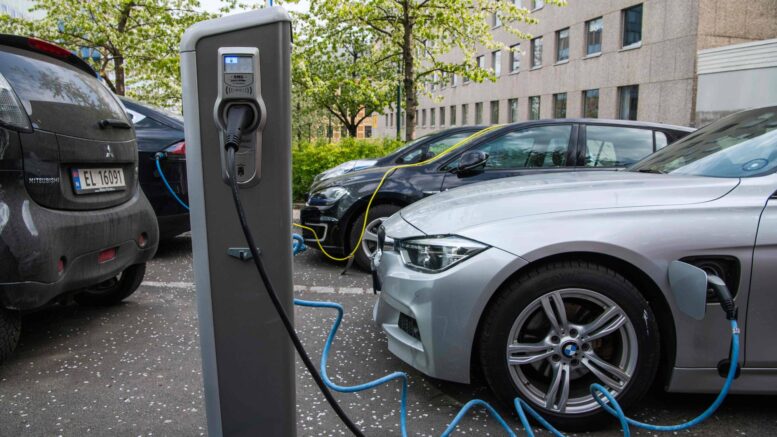After Michigan missed out on $11.4 billion of electric vehicle investment, Gov. Gretchen Whitmer joined the Regional Electric Vehicle for the Midwest Memorandum of Understanding (REV Midwest MOU).
Illinois, Indiana, Minnesota, and Wisconsin are collaborating on electric vehicle (EV) charging infrastructure. The group’s goal is to accelerate Midwest vehicle electrification. The coalition will focus on calming “range anxiety” since batteries provide less range and fewer “refueling” options than gas engines.
The states will work together to enable EV charging by optimizing charging infrastructure and position Midwest states for federal funding opportunities.
“Today’s REV Midwest partnership is a bipartisan effort to build the future of mobility and electrification and connect our communities,” Whitmer said in a statement. “Our partnership will enable the Midwest to lead on electric vehicle adoption, reduce carbon emissions, spur innovation, and create good-paying jobs.”
Whitmer claims Michigan is the future of EV, but Dearborn-based Ford choosing to build new factories in Kentucky and Tennessee due to the states’ competitive advantages of cheaper land and energy says otherwise.
The announcement follows as Michigan tries to maintain its heavyweight status in transportation and prepare for EVs. So far, most Michiganders drive gas vehicles. The Secretary of State’s office counts 5.8 million gas vehicles, and 13,545 EVs, and 105,651 hybrid vehicles registered in the state. One likely reason for the relatively low count for EVs is chargers can be hard to find depending on a person’s commute. As of Nov. 2020, Michigan ranked 14th-to-last in the nation for the number of EV chargers per 100,000 people.
The Michigan Department of Environment, Great Lakes and Energy Charge Up MI program will provide $1.25 million in initial funding to eligible partners to install charging infrastructure. An estimated 105,000 new jobs in the utility sector are expected to deploy EV charging infrastructure by 2030.
The coalition faces tough challenges, including who will pay for EV infrastructure. Currently, EV drivers don’t pay gas taxes despite driving on roads funded by gas taxes.
Moreover, ethical questions linger about precious metals needed for EVs. The world’s top lithium producers are South America, where Argentina and Chile provide 93% of U.S. lithium. Amnesty International reports thousands of child laborers are used to mine cobalt for lithium batteries. Additionally, a Guardian report noted that children as young as six work in the mines.
While they don’t guzzle gas, a single Tesla requires seven kilograms of lithium for its battery pack, which requires an energy-intensive extraction from the brine of salt flats that can damage the environment and cause water shortages, such as in Chile’s Atacama and Argentina’s Salar de Hombre Muerto regions, Ronald J. Deibert explains in his book “Reset: Reclaiming the Internet for a Civil Society.”
A third problem is how Michigan sources its energy. The U.S Energy Information Administration (EIA) says in 2020, natural gas accounted for 33% of the state’s net energy generation, followed by nuclear power (29%), coal (27%), and renewables (11%).
The goal of switching to EVs is to reduce carbon emissions and use renewable energy to produce electricity. It’s unclear if millions of Michiganders switching to EVs would hike electricity prices. In 2019, the EIA says that Michigan was among the top five states in residential sector petroleum use.
This article was originally posted on Michigan joins Midwest EV coalition after missing joint $11.4B Ford investment

Be the first to comment on "Michigan joins Midwest EV coalition after missing joint $11.4B Ford investment"